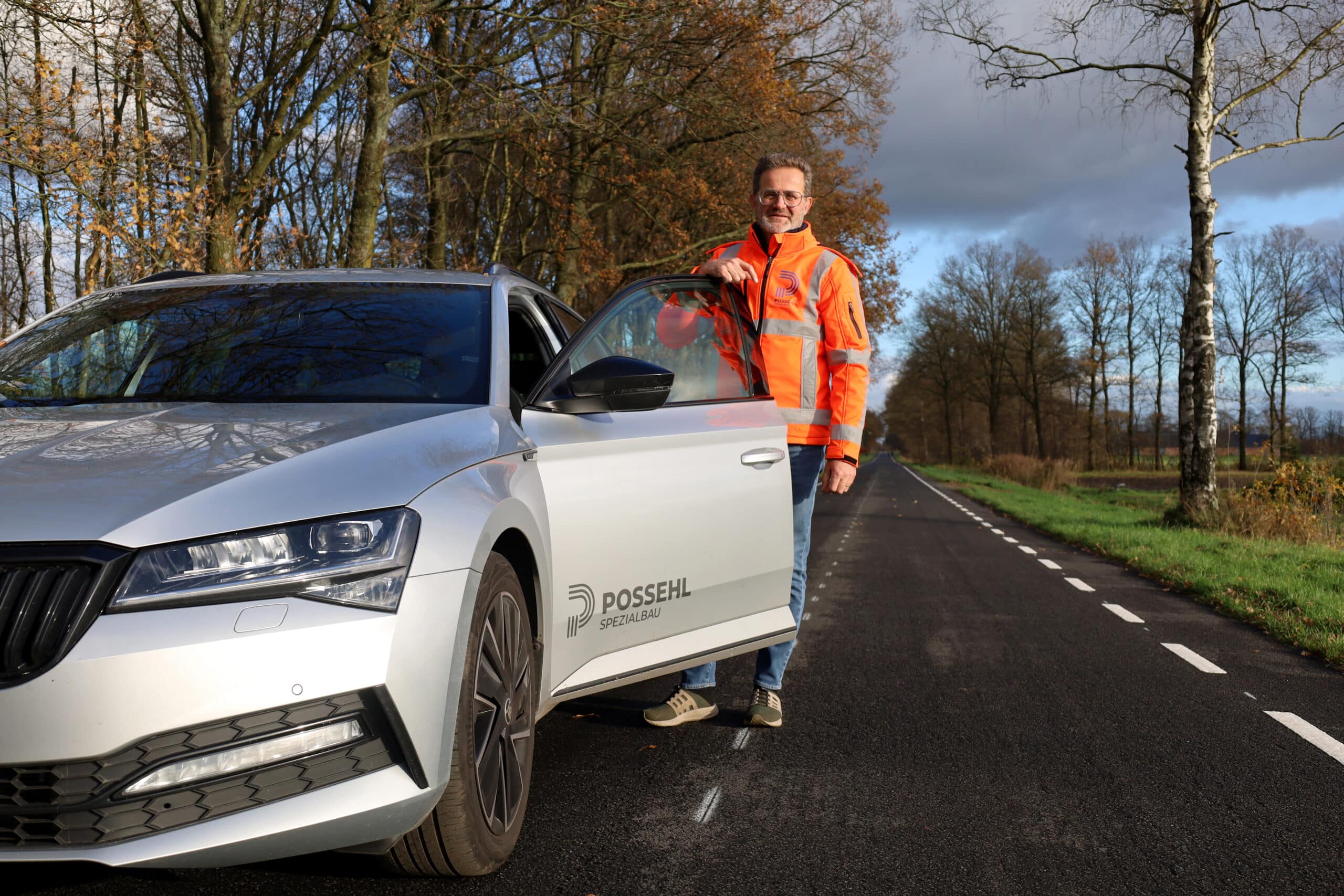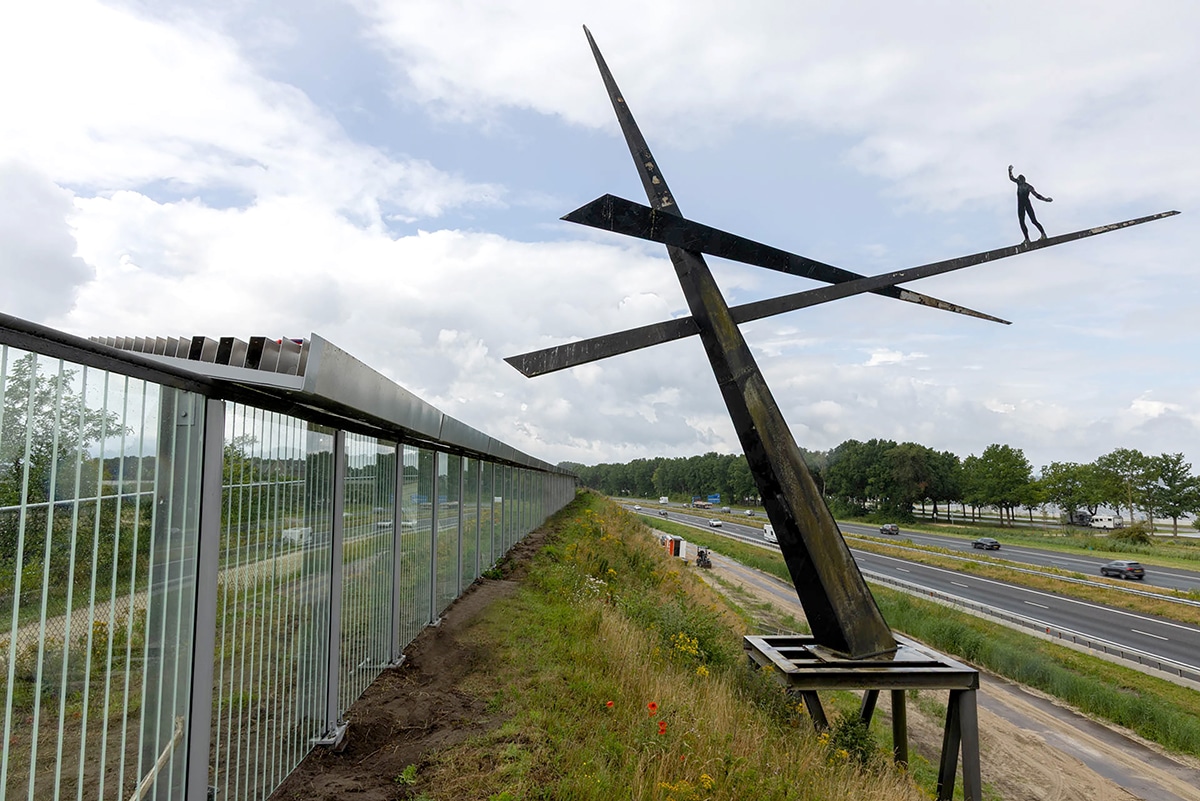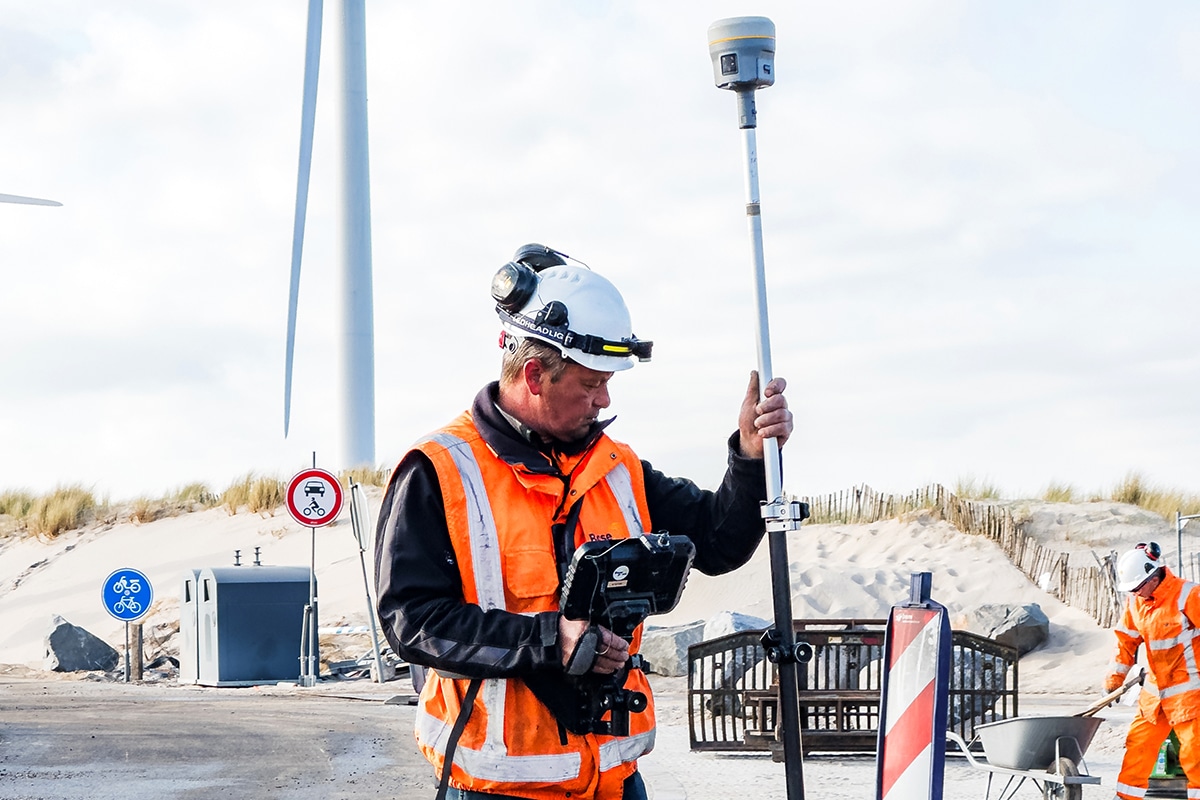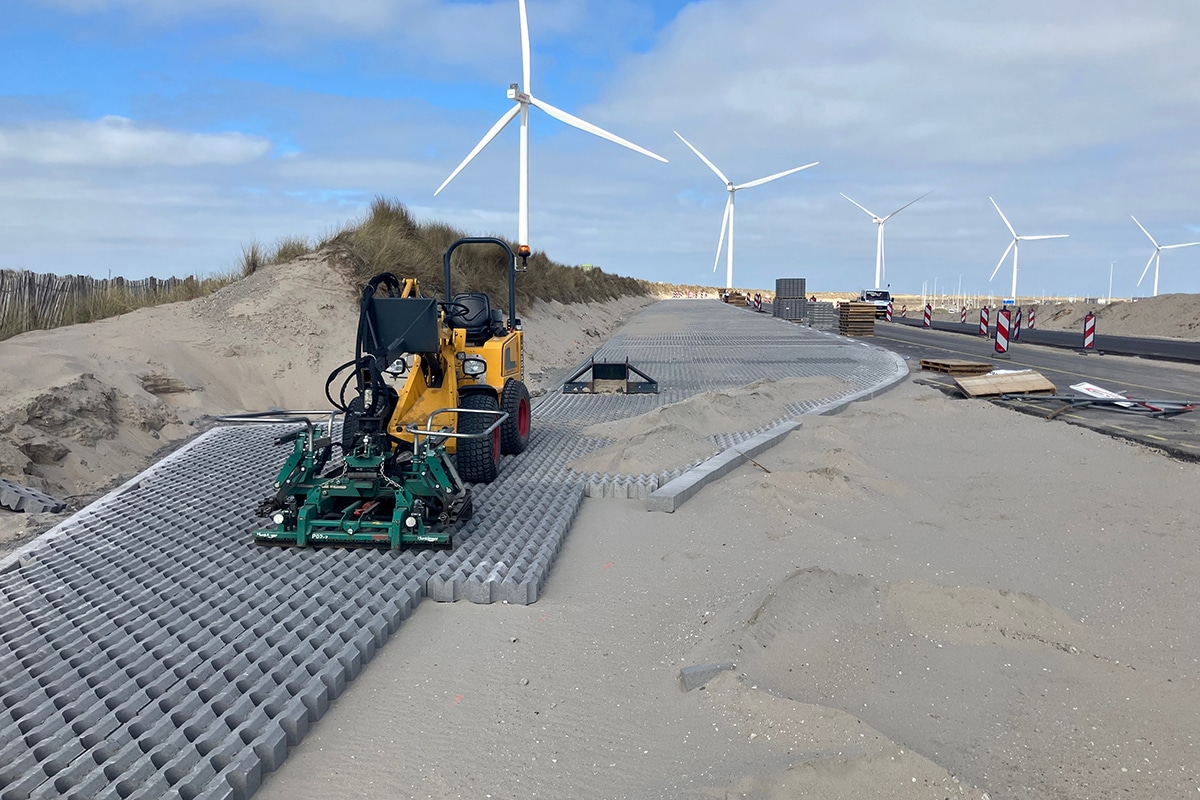
'Today's asphalt won't be for sale in 2025'
Many roads that lead to sustainable asphalt
The Dutch asphalt industry is a global leader in making asphalt more sustainable and sets itself new goals all the time. A year and a half ago, for example, the decision was made to phase out the current hot-mix asphalt mixtures. This means that today's asphalt will no longer be for sale in 2025. An ambitious decision when you consider that we currently use 300+ different asphalt mixtures in our country. Stefan de Munck, chairman of the Bituminous Works Department of Bouwend Nederland, updates us on the latest developments in the field of asphalt sustainability.

The Bituminous Works professional group consists of members of Bouwend Nederland who both produce and process asphalt. The trade group promotes the applications of asphalt, participates in (European) regulations, pays attention to the environment and provides information about the product asphalt. "Based on the sustainability task, a unanimous decision was made eighteen months ago to phase out the current hot-mix asphalt mixtures," says De Munck. "We were quite early in doing that because, with a few exceptions, clients have only been seriously looking at making construction projects more sustainable in the last year. And that is already paying off for our industry, especially given the current market developments with PFAS still fresh in our minds and the current nitrogen file. In order to make any projects at all in the coming years, an acceleration on emission-free construction projects is essential."

14,000 tons of CO2-reduction
About 9 m3 of gas is consumed on average in the production of asphalt, according to De Munck. "The biggest savings in both emissions and CO2-footprint can be achieved by reducing the temperature. Warm Mix Asphalt is therefore the sustainable alternative and the next step in making asphalt sustainable towards 2025. Actually, all asphalt plants have been working on this for some time. Some producers are focusing more on the hardware, with different techniques in the plant, while others are looking for it more in adding additives to be able to produce at a lower temperature." For comparison, current hot mix asphalt is produced at a temperature of around 160 degrees Celsius, semi-hot mix sits at 140 degrees Celsius and hot mix at 100 - 110 degrees Celsius.

Lowering the production temperature saves some 14,000 tons of CO2-emissions, assuming 7 million tons of fresh asphalt applied to roads, parking lots and runways in the Netherlands each year.
Sustainable mixture composition
Making it more sustainable also means recycling even more of the asphalt released from existing roads. "So putting the milled asphalt back into the new mix with as high a percentage as possible," De Munck explains. "We are the leader in this in the Netherlands, by the way. The reuse of milling asphalt has been fairly commonplace here for about thirty years and came about because of the scant availability of raw materials. After all, we have no quarries or mountains here. The raw materials come from far away. What we do see is that in recent years the use of milling asphalt has continued to increase. On average, the percentage recycling of milling asphalt is at 50%, but there are also already mixtures that consist of (more than) 70% milling asphalt." From the sustainability perspective, the optimization of binders in the mixture is also being looked at. Here too, according to De Munck, several paths are being taken. "Think about the development of bio-based binders or adding additives. It's quite a (long) development path and that sometimes makes it difficult. For example, additives can cause problems with emissions at the stack. Moreover, the final quality has to prove itself over time. It may work for now, but how does the asphalt behave in the longer term? All issues that need to be investigated."

Emission-free equipment
The emission-free application of asphalt is a logical step in making the sector more sustainable. De Munck: "It is a theme that is common to every road construction company and comes down to pretty much the same thing: investing in electric excavators, asphalt spreaders and rollers. Small detail: such an electric machine is at least twice as expensive as a standard machine. This is partly due to the fact that such machines do not (yet) roll off the assembly line in large numbers. Here again, the Netherlands is the best boy in the class. For years we have been accustomed to investing in cleaner equipment, think of the Stage V Euro 6 engines. In the rest of the world this is apparently not really a topic yet. Diesel engines that we said goodbye to ten years ago are still being produced. Two years ago, therefore, no manufacturer was electrifying machines. It was and sometimes still is quite a tough task to convince them that emission-free really is the future, either electric or hydrogen."
The investment in zero-emission equipment pieces does have to be "covered" on projects, De Munck acknowledges. "The operation has to be a balanced story. Our members invest in equipment to make projects emission-free, but then it must be able to be recouped. After all, the hourly rate of such (much more expensive) machines is significantly higher. Clients must therefore also go along with this and above all be open to it. They often pretend to want to approach projects in a sustainable way, but it must not be more expensive. We are in that split now. Although current market developments are playing into the hands of companies that have already invested in emission-free equipment. They have a head start, because projects that come onto the market now will definitely be put out to tender with limited emissions."
Broadening the frameworks
To achieve an acceleration in sustainability, the Bituminous Works Trade Group is also engaging with clients. "If we want to make strides, we may have to go off the beaten path in some areas," says De Munck. "It requires a broadening of the frameworks. Few contractors are willing to stick their necks out at current contract requirements to, for example, do tests with bio-based binders, entirely at their own risk. No, for that you also need clients, including a healthy mix in risk bearing capacity and an adjustment of the frameworks and regulations. Quite a few contractors have been developing lower-temperature asphalt for fifteen years or more. That caused quite a bit of discussion at the time, because the contract documents stated that it could only be called asphalt if it was produced at a temperature of 160 degrees Celsius. Fortunately that is now in the past and awareness has grown, but the example does show that you sometimes have to go off the beaten track and even modify contract documents. Otherwise you stand in the way of innovation and thus sustainability."
Even colder mixtures
As of 2025, the current hot mix asphalt mix will no longer exist. "That's pretty quick considering we announced it a year and a half ago, but realistic," De Munck believes. "This is because the production of Hot Mix Asphalt can be fitted into the existing asphalt plants. It does require an investment in hardware to add additives, but that investment is still reasonably manageable. The step after that is much bigger, because Warm Mix Asphalt is obviously not the end station. Further innovation toward even colder asphalt mixtures presumably cannot be done at current plants. Knowing that the existing plants will not be written off by tomorrow, the main thing is to find a balance between being able to make investments and becoming more sustainable. But we will eventually succeed in this too. Despite the fact that we are a small country and certainly not one of the biggest consumers of asphalt, we are the most innovative in the world. With the added note that in the Netherlands we strive for a very high quality standard of mixtures with a life span of at least ten to fifteen years." So there are many roads that lead to sustainable asphalt. To be continued, no doubt!




